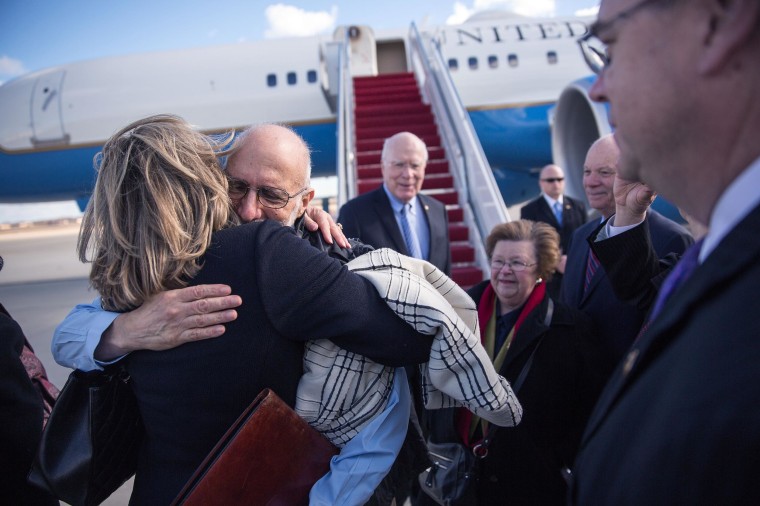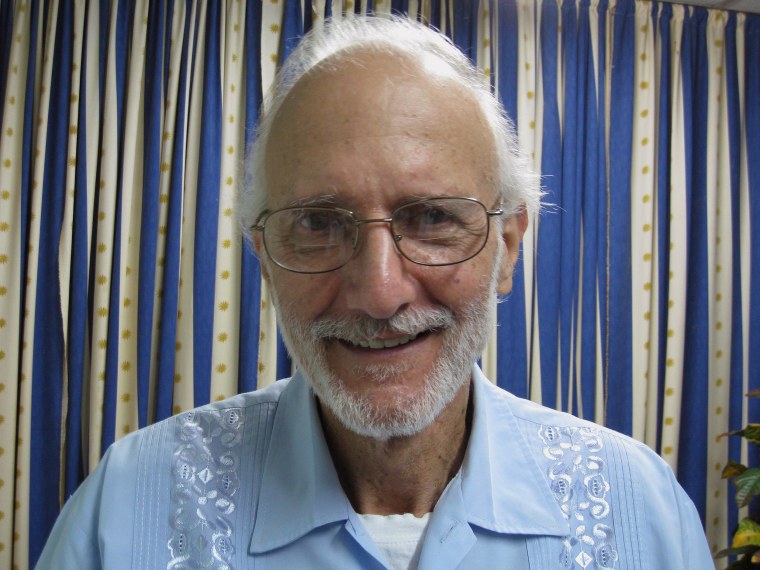WASHINGTON — The Supreme Court won't hear an appeal from a former government subcontractor seeking to sue the U.S. government for negligence over his five-year imprisonment in Cuba.
The justices on Monday let stand a federal appeals court ruling that threw out Alan Gross' $60 million lawsuit blaming the federal government for failing to prepare him for the risks of working in Cuba.
Gross was freed in December as the U.S. announced it would re-establish diplomatic relations with Cuba. He was working as a U.S. Agency for International Development subcontractor in Cuba when he was arrested in 2009.

The U.S. Court of Appeals for the District of Columbia Circuit ruled last year that the U.S. government is immune from claims arising in a foreign country.
In a separate case, Gross received $3.2 million in December from the federal government as part of a settlement with the Maryland-based company he worked for at the time of his arrest.
The USAID said it paid Gross to settle claims pending before the Civilian Board of Contract Appeals for unanticipated claims under a cost-reimbursement contract with Development Alternatives Inc. of Bethesda, Maryland.
The USAID said the settlement was not an admission of liability, but was intended to avoid the costs and risks of further legal proceedings.
IN-DEPTH
- U.S. Pays $3.2 Million to American Held Years by Cuba
- 'Glorious Day': Freed American Says It's Good to Be Home
